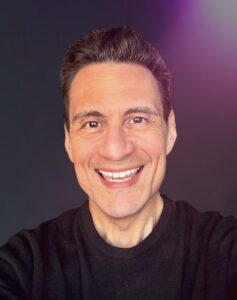Post Author: Timothy Lesaca, MD

Timothy Lesaca is a psychiatrist in private practice at New Directions Mental Health in Pittsburgh, Pennsylvania, with more than forty years of experience treating children, adolescents, and adults across outpatient, inpatient, and community mental health settings. He has published in peer-reviewed and professional venues including the Patient Experience Journal, Psychiatric Times, the Allegheny County Medical Society Bulletin, and other clinical journals, with work addressing topics such as open-access scheduling, Landau-Kleffner syndrome, physician suicide, and the dynamics of contemporary medical practice. His recent writing examines issues of identity, ethical complexity, and patient–clinician relationships in modern health care. Additional information about his clinical practice and professional work is available on his website, timothylesacamd.com. His professional profile also appears on his ResearchGate profile, where further publications and details may be found.

Timothy Lesaca is a psychiatrist in private practice at New Directions Mental Health in Pittsburgh, Pennsylvania, with more than forty years of experience treating children, adolescents, and adults across outpatient, inpatient, and community mental health settings. He has published in peer-reviewed and professional venues including the Patient Experience Journal, Psychiatric Times, the Allegheny County Medical Society Bulletin, and other clinical journals, with work addressing topics such as open-access scheduling, Landau-Kleffner syndrome, physician suicide, and the dynamics of contemporary medical practice. His recent writing examines issues of identity, ethical complexity, and patient–clinician relationships in modern health care. Additional information about his clinical practice and professional work is available on his website, timothylesacamd.com. His professional profile also appears on his ResearchGate profile, where further publications and details may be found.
Human rights are understood to be universal and egalitarian. They are inalienable, indivisible, and grounded in a shared moral intuition: that human dignity deserves protection. One of the most widely accepted expressions of that intuition is the obligation to care for those who are physically or emotionally ill. Yet despite this near-universal belief, modern health care systems continue to struggle with a fundamental question: Is health care a human right, …
Read more…
Most of us don’t notice moral development happening while it is happening. Moral character forms quietly, through repetition, through what we get used to doing and through what we slowly stop doing without much forethought.
Artificial intelligence matters from a moral perspective long before it ever potentially becomes conscious or autonomous. Although AI may or may not confront us with dramatic ethical dilemmas, it does change our moral lives in a …
Read more…
For years we have told patients the same thing when they have trouble finding a doctor: Go to your insurance directory, look it up, they can help you.
And despite saying that, many of us have quietly known for a long time that this advice is broken. We still give it. We give it hoping for the best, knowing there really are not many other useful options to offer at this …
Read more…
The discomfort I felt around supervising did not arise in the clinic. It arose while reading the agreements meant to define it.
Supervisory agreements. Collaborative designations. Regulatory language that needed to be reconciled (carefully, deliberately) because names, roles, and obligations matter. Like many physicians, I have signed these documents countless times. But reading them slowly, rather than reflexively, produced an unexpected unease, one that felt structural rather than personal.
The language was …
Read more…
Factitious disorder imposed on another (FDIA), formerly known as Munchausen syndrome by proxy (MSBP), represents one of the most egregious and dangerous forms of child maltreatment encountered in clinical practice. Although terminology has evolved, the core phenomenon described decades ago remains unchanged: A caregiver, most often the mother, intentionally fabricates, exaggerates, or induces illness in a child to meet psychological needs. The child suffers not only from the caregiver’s direct …
Read more…
The recent federal conviction of Done Global’s CEO, Ruthia He, and its clinical president, psychiatrist David Brody, on November 20, 2025, has brought long-standing concerns about virtual ADHD prescribing into undeniable focus. A San Francisco jury found both executives guilty of conspiring to distribute Adderall and other Schedule II stimulants, along with health care fraud and (for He) obstruction of justice. According to the Department of Justice, Done Global generated …
Read more…
Have you ever wondered how a single online comment might shape your reputation as a physician? I have, especially after reading a review that sardonically suggested I had earned my medical degree from Amazon (the company, not the rainforest). The jab was clearly meant to sting. Although I regret the dissatisfaction behind it, it gave me pause. How much weight do we give these offhand remarks, and what do they …
Read more…
Some cases linger in our memory because of the humanity at their center. The case of Charlie Gard, which unfolded in England in 2017, is one of those. It took place within the National Health Service and under a legal framework in which courts decide a child’s treatment when parents and clinicians cannot agree. Before it became a global controversy, before it drew international headlines, it began as something far …
Read more…







![AI censorship threatens the lifeline of caregiver support [PODCAST]](https://kevinmd.com/wp-content/uploads/Design-2-190x100.jpg)

